It’s a frigid January night, the second in a row to dip below zero degrees Fahrenheit in Chicago.
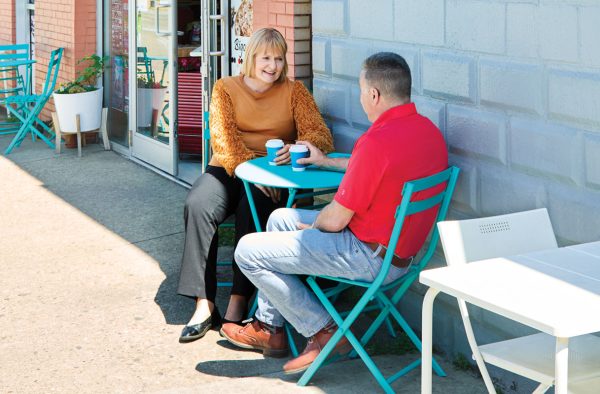
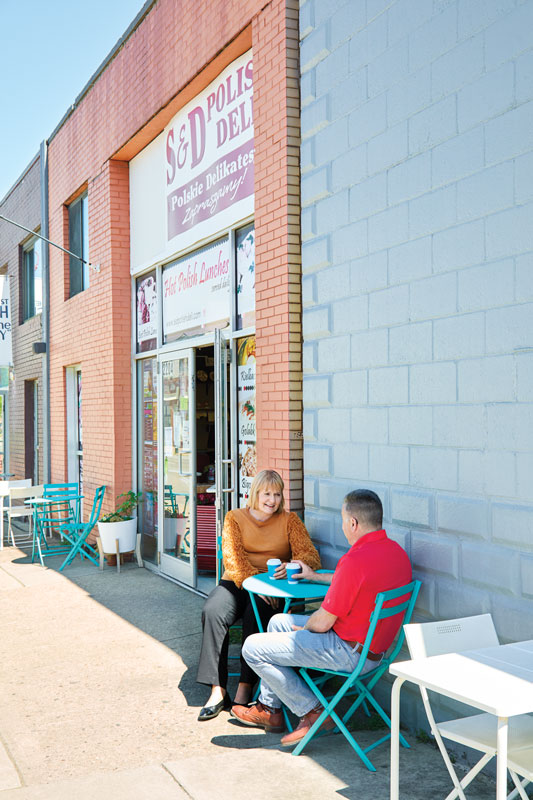
Schools are closed, events cancelled, flights grounded. Outside an arctic blast is howling, but inside Stephanie Urchick’s condo, the party is sizzling.
Stephanie wears jeans and a Pittsburgh Steelers t-shirt with a “Magic of Rotary” pin affixed. Draped over one of her shoulders is a “Terrible Towel,” an iconic yellow dish towel-
size piece of fabric that stalwart fans of the American football team wave to rally their team. The occasional cheer or groan punctuates the party’s chatter.
This playoff game between the Steelers and the Buffalo Bills has already been rescheduled once because of the dangerous winter weather sweeping across the United States. A group of Rotarians visiting Rotary headquarters was stuck in suburban Evanston because of a flight delay, and Stephanie invited them to watch the game with her. The 2024–25 Rotary International President Stephanie has just returned from a trip to the International Assembly in Orlando. She pulls out some pierogi, a type of Polish dumpling, from her freezer and sets out beverages of all kinds for her unexpected guests.
To call Stephanie a sports fan might be a Hall of Fame–worthy understatement.
To call Stephanie a sports fan might be a Hall of Fame-worthy understatement. At her home in Canonsburg, Pennsylvania, about 20 minutes outside Pittsburgh, Stephanie’s basement “woman cave” is floor to ceiling Pittsburgh sports: 1990s-era cereal boxes featuring baseball great Roberto Clemente and the Stanley Cup-winning Pittsburgh Penguins hockey team; photos of her with Pittsburgh sports legends including Steelers running back Rocky Bleier, along with one of Bleier’s framed jerseys; a Steelers piggy bank; Penguins hockey pucks; a signed football; a collection of tickets; a Steelers quilt. Her most recent acquisition is a bobblehead of Pirates baseball player Richie Hebner, whose photo Stephanie plastered in her high school locker. In a nearby closet hang her two favourite uniforms: her Rotary t-shirts and her Pittsburgh fan gear.
The Bills score three touchdowns in a row to open the game, making the score 21–0 by the middle of the second quarter. Stephanie steps away from the group gathered in front of the television and perches behind the kitchen counter, checking her phone and the food she’s heating up in the oven.
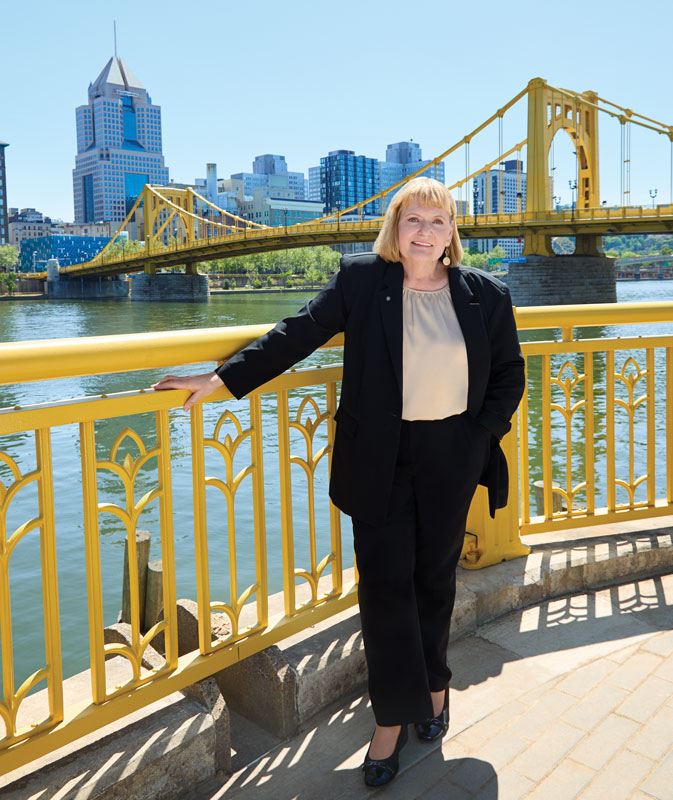
Her enjoyment of sports extends well beyond that of a typical fan. One summer, she assisted with character analyses for Canadian Football League scouts, attending NFL training camps to watch for players who might be cut and would be a good fit for that league. (She recalls Baltimore Ravens coach John Harbaugh approaching her about her role: “I’ve never worked with a lady before!” “Well,” she replied, “I don’t bite.”) She also participated in a women’s training camp put on by the Steelers and run by former players; her experience was cut short after she snapped her Achilles tendon doing footwork drills through car tires. Didn’t matter. “It was just a fun, fun summer,” she says.
She met the vice-president of the Steelers, Art Rooney Jr, when he spoke to her Rotary club. Afterward, she brought him some chocolates from Sarris Candies, a well-known confectionery founded in Canonsburg. It’s a tradition she’s continued to uphold a few times a year, the two united by their love of the game.
That kind of connection is what’s happening at the party tonight. Fellow Steelers fan René Laws, 2023–24 governor of District 7610 (Virginia), wears her #90 TJ Watt jersey for the occasion. The two met when they sat at the same table at a presidents-elect training seminar and their mutual love of the Steelers came up. “Ever since then, we would see each other at events and we would always have football and Rotary to talk about,” Laws says. The Steelers score early in the fourth quarter and pull within a touchdown of tying the game. The two laugh as they both signal a Steelers first down along with the refs.
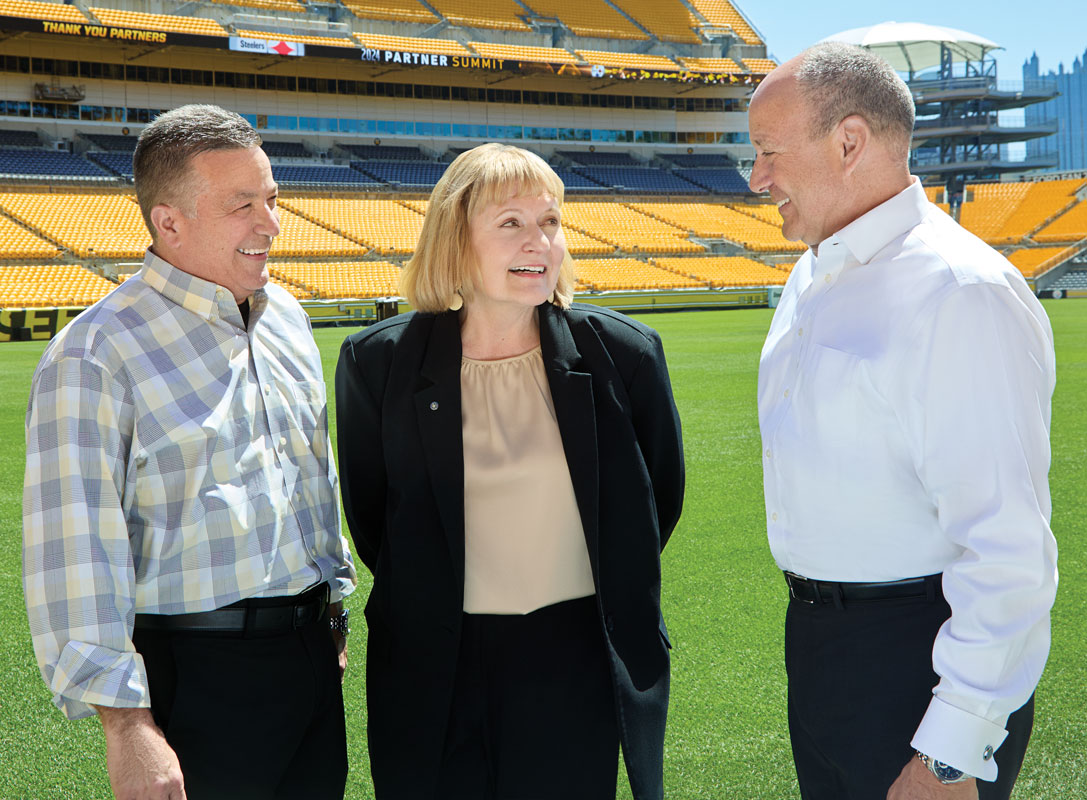
Life couldn’t be better, unless the Steelers were actually winning, which unfortunately is not the case. Not tonight. The Bills score one more touchdown with 6.27 remaining in the game. Their fans celebrate by tossing snow in the air. The Steelers lose the game 31–17 and that’s the end of their season. But for Stephanie it’s just the beginning. This year, she will get her own chance to head up a winning team: Rotary.
A few weeks later, Stephanie gathers with family back in western Pennsylvania for the birthday of her eldest cousin, Michael Hatalowich. The two grew up like siblings, always at each other’s houses, and they still tease each other as if brother and sister. The kitchen counter is spread with pizza and chicken wings, pasta salad, fruit, crackers and dips, as the news plays in the background on the television in the living room. But before they eat, the dozen or so gathered — cousins and their spouses, children, and grandchildren — sing “Happy Birthday,” first in English, and then in Slavonic, harmonising to “Mnohaja Lita,” a traditional Carpatho-Rusyn birthday song whose title means “many years.” Stephanie joins in, her voice clear and strong.
Music has been a touchstone throughout Stephanie’s life. Her dad played the accordion and led a polka band, the Harmoneers, for more than 35 years. “I learned to polka before I learned to walk,” she says. Stephanie was a singer with her father’s band and when she’s in town, she sings with the Orthodox church choir directed by another of her cousins. “You know how some families get together and play cards?” she asks. “My father was a musician. My grandmother, my aunts, they were all singers. So when we got together, we sang.”
Spend a bit of time with her and you’re likely to hear family lore involving a misunderstanding around beets and the power of a patron saint.
Stephanie grew up here in western Pennsylvania, near the border of West Virginia, a countryside of forests and farms in the foothills of the Appalachian Mountains. Both her maternal and paternal grandparents moved here from Eastern Europe (Poland, Slovakia, and Ukraine), settling down to take advantage of the jobs in the region’s coal mines and steel mills. When she arrived in the US, her mother knew one sentence: “Give me some potatoes.”
Stephanie’s culture and her family remain important to her. Spend a bit of time with her and you’re likely to hear family lore involving a misunderstanding around beets and the power of a patron saint and stories about her visits to meet distant relatives in Eastern Europe. She gathers regularly with Hatalowich and her other maternal cousins who live nearby, and she gets together with her more far-flung paternal cousins for an annual trip.
Western Pennsylvania is part of what was once known as the Steel Belt for its steel mills and coal mines, though it’s now called the Rust Belt after the decline of those industries in the 1970s and ’80s. The population of Stephanie’s childhood hometown, Monessen, peaked at around 20,000 people in the 1930s but as of 2022 had declined to less than 7,000. Rows of stores along the main street stand vacant, and there’s only one full-fledged grocery store left in town. Holy Name Cemetery, the Slovak cemetery where Stephanie’s paternal grandparents are buried, is more than half empty, its pristine lawns an indication of the number of graves originally anticipated. “They’ll never fill it up,” Stephanie explains, “because so many people left town.”
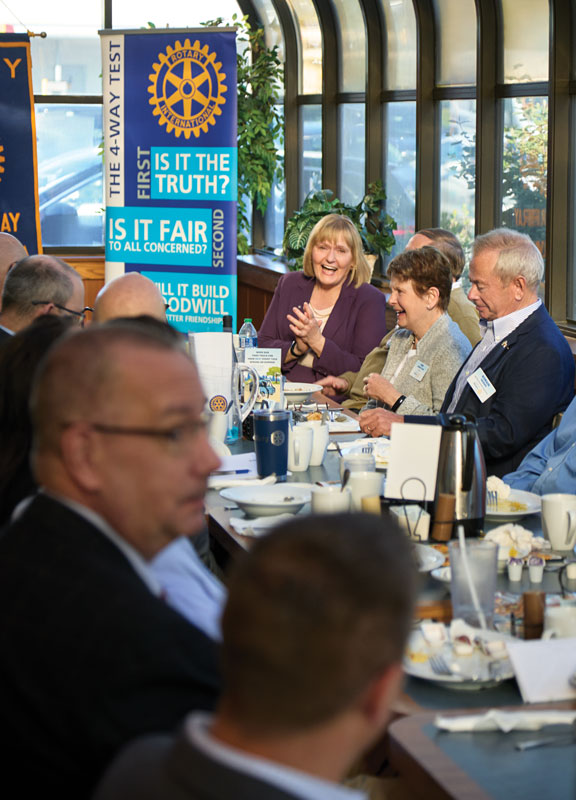
As a child, Stephanie devoured Nancy Drew mystery novels and dreamed of being a spy. “I was in this little place in Pennsylvania, and I really had never gone anywhere,” she says. “I wanted to see the world.” When she went to college, she channelled that desire into a major in international relations, with its focuses on history, political science and languages. She studied Russian, Polish, Serbian and Italian, on top of the French she’d learned in high school. As she was finishing up college, she applied to work for the FBI, the CIA, and other US intelligence agencies. But there was one obstacle: All four of her grandparents were from Eastern Europe. “Most people’s background checks take about three or four months,” she recalls. “Well, mine apparently took a year and a half.”
By the time the FBI called with a job offer, Stephanie had started down a new career path as an administrator in higher education. And she loved it. She declined what had been her dream job (although she jokes that her work with Rotary is merely an elaborate cover for her cloak-and-dagger pursuits), and she went on to earn a master’s degree in education and a doctorate in leadership studies. Her dreams of an international career were back-burnered — that is until Rotary came along.
Being irresistible means the experience is so compelling, so fun, so dynamic that people are drawn to it and don’t want to leave.
Over dinner at the birthday party, Stephanie’s nephew Jeremy Layne reflects on his aunt. Layne, now 38, didn’t meet Stephanie until he was a teenager, and he recalls the impact that moment eventually had on the trajectory of his life. She encouraged him to push himself toward his goals and refuse to accept “no” as an option. “The day I met her at my Baba’s (grandmother’s) house, from that day forward she has meant everything to me,” he says. “Her vibe, her energy, her spark that she gives off is just intoxicating. She’s just an amazing woman. I’m so thankful for her to be in my life.”
“She really is very authentic and very genuine,” says Rebecca Bazzar, Hatalowich’s daughter. “She could fit in anywhere, in a room full of diplomats or a room full of local yokels. Everybody loves her and she’s going to have a good time everywhere she goes.” Bazzar leans over and in a conspiratorial whisper adds, “You won’t meet anyone more fun than her.”
The dozen people gathered toast “Na zdravja!” and then Stephanie begins the long process of hugging everybody goodbye. They discuss where she’s travelling next, her family members wishing that she stay safe. As they walk outside, she and her cousin Peter Merella, the choir director, say goodbye “their way,” in Polish. “Do widzenia.” They loosely translate: “Until we see each other again.”
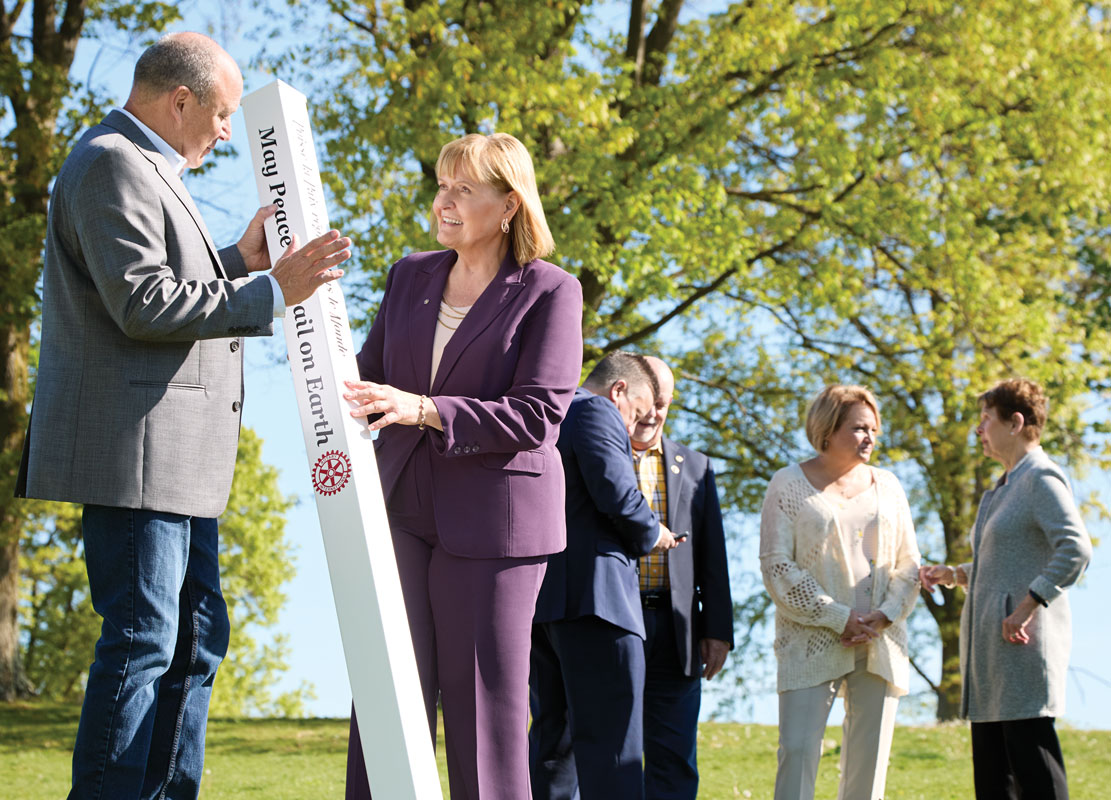
The next morning, as she walks into a side room at a diner in Canonsburg, Stephanie is welcomed by hoots and applause from the couple dozen Rotary members seated along a string of tables. But it isn’t just Stephanie who’s cheered as she enters the room. It’s the greeting that every member gets when arriving for a meeting of the Rotary Club of McMurray, Stephanie’s home club.
The tradition started a few years ago when someone arrived late to the meeting. Everybody cheered — and it caught on. Now no matter when they arrive at the meeting, all members are greeted as if they’re the president of an international organisation. “How could you not feel good?” Stephanie says.
She hugs William Kern, the club president, and the meeting starts. It’s a breakfast meeting, and the smell of toast permeates the air. The table is a jumble of coffee mugs and carafes, empty cups of half-and-half, and water glasses. The food begins to arrive, classic diner fare including French toast, bagel sandwiches, hash browns and oatmeal. Stephanie isn’t much of a breakfast eater and sticks to decaf coffee.
She really is very authentic and very genuine. She could fit in anywhere, in a room full of diplomats or a room full of local yokels.
For years, the club had been stuck at around 35 members, Stephanie says. But it used Rotary’s Action Plan to take a look at itself with new eyes. Club leaders asked every member about the club’s performance — things such as the club meeting day, time and location, and club projects. With that information, they determined that meeting at a different time of day might work for more people and switched from a lunch club to breakfast. “Instantly, and I mean instantly, we had two new people come into the club,” Stephanie says. “They said they were invited before but could never come.”
The club didn’t stop there. Members talked to other groups in the area and found people who wanted to serve but didn’t want to attend club meetings. Looking into options, club leaders started a satellite club for people to do just that. The concept brought 15 new members to the club. “They pay full dues,” Stephanie says. “We don’t discount anything. But we also know they’re not coming to weekly meetings.” Instead, they hold “PBR” nights, referring not to the familiar monogram of the American beer Pabst Blue Ribbon, but to “pizza, beer, and Rotary.”
This morning’s meeting is vibrant, full of lively conversations and bursts of laughter. The cheering, the shared breakfast, the camaraderie is all part of the club’s intention to be, to borrow Stephanie’s catchphrase, “simply irresistible.” “It makes my job easier talking about being a Rotarian in an active club,” she says. Being irresistible “means the experience is so compelling, so fun, so dynamic that people are drawn to it and don’t want to leave,” she adds. “At the bottom of that is the whole concept of belonging: Is this the kind of group I want to belong to?”
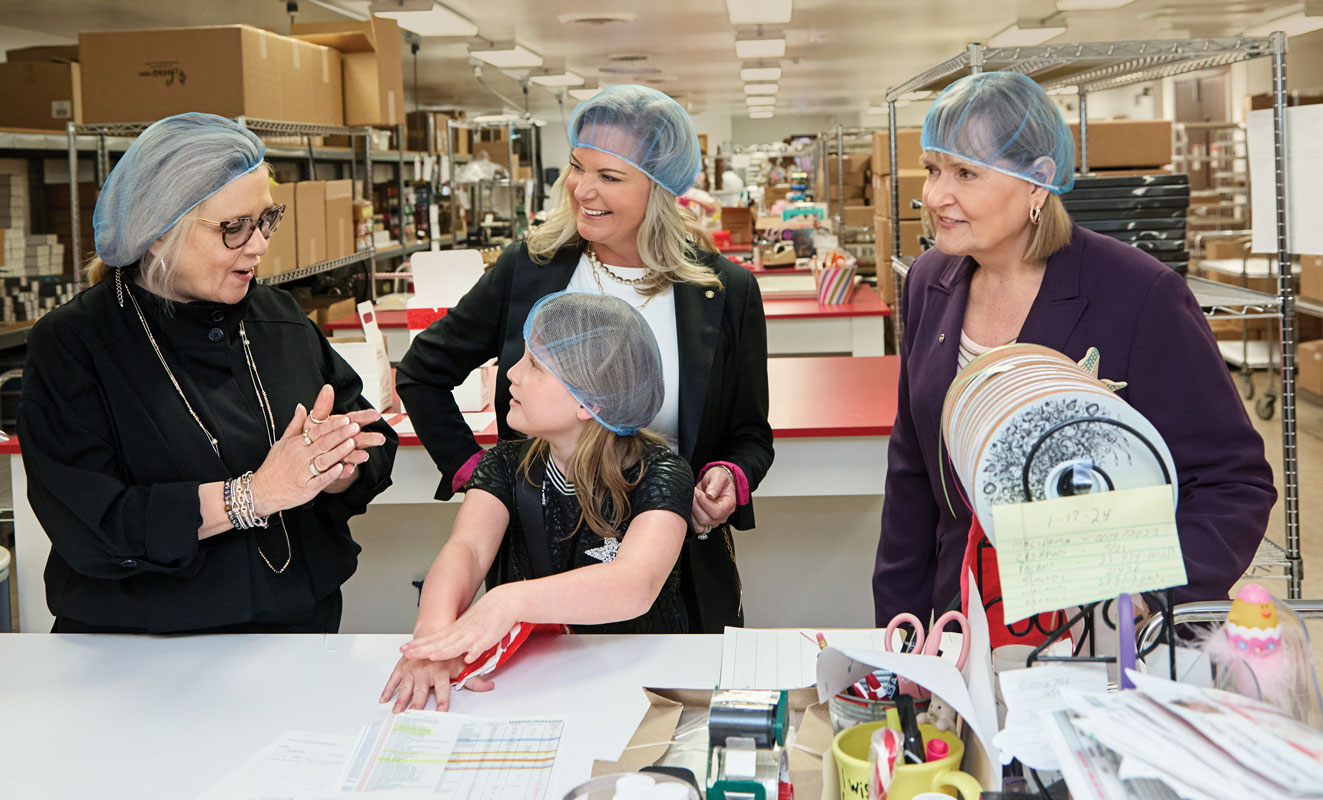
That was the question Stephanie asked herself in 1991, when an acquaintance walked into her office at the California University of Pennsylvania and asked if she’d like to go to a Rotary club meeting. Stephanie didn’t know much about Rotary, but she was recently divorced and looking for ways to meet new people. And when the woman mentioned Rotary’s internationality, something clicked.
When she went to her first meeting of the Rotary Club of California, a town south of Pittsburgh, she met Chuck Keller, a member of the club and RI’s 1987–88 president. “He introduced himself and we got to be friends quickly,” she says. “I had a built-in Rotary godfather. It was amazing.” Stephanie dove in, hosting Group Study Exchange team members and pitching in with the club’s Youth Exchange students. She organised an indoor picnic complete with a three-legged sack race. “Oh, my gawd,” she says in her Pittsburgh accent, “it was hilarious.”
Stephanie was drawn especially to the work of The Rotary Foundation, becoming first the Foundation chair for her club and then for her district. Later, at the zone level, she served as a Regional Rotary Foundation Coordinator, focusing on fund development. She worked with Lou Piconi, another Pittsburgh-area Rotarian who had served Rotary on the international level as both a director and trustee, to train what they called “major donor possibility teams,” groups of five to seven people who focused on fundraising for The Rotary Foundation. “Lou and his wife, Barbara, and I would get in his big red Cadillac,” she says, and travel around the region. “We had a great time.”
Her work with the Foundation meant more people got to know her and led to a 5am phone call in 2012. Her name had been put forward to replace Anne Matthews as a Rotary Foundation trustee. (Anne left her post to join the Rotary Board of Directors.) Later, Stephanie became a director herself and led the organisation’s Strategic Planning Committee, a role that proved pivotal to shaping her thinking about how to move Rotary into a thriving future.
Given Stephanie’s background in international relations, her interest in peace as another of her priorities as president likely comes as no surprise. She encourages living The Four-Way Test, investing in a positive club culture and engaging with Rotary Peace Centers as ways members can help spread the message of Rotary’s commitment to peace. “We’re not going to get a Nobel Peace Prize for stopping a war,” Stephanie says, “but we can use what we have in Rotary to make the world a better place.”
One of the pillars of Stephanie’s peace push is, well, a pillar. That afternoon after the club meeting, she joins members of the Rotary Club of White Oak at a park in the community about 15 miles southeast of Pittsburgh. It’s a gorgeous sunny day that feels like spring although it’s only early February, with a slight breeze on the remaining leaves clinging to the oaks in the park.
Dan Dougherty, the 2024–25 governor of District 7305 and a member of the White Oak club, is holding a white 8-foot pole. The words “May Peace Prevail on Earth” are inscribed on it in eight languages — English, Irish, Italian, Polish, German, Croatian, Spanish and Vietnamese — spoken in the community. The phrase also appears in Braille, and there is a rainbow flag sticker and another decal for Veterans for Peace. Stephanie walks up and immediately pulls out her phone, scanning the QR code on the peace pole’s side that links to a website with more information.
She encourages clubs to put up these poles as visible signals of their commitment to peace, whether at members’ homes, in their club, their community, or around the world. Dougherty’s wife, Autumn, who is also a member of the White Oak club, has made it her goal to get every club in their district to erect a peace pole in the coming year.
When the last White Oak club member arrives, everyone clusters around Stephanie like players huddled around their coach during a crucial timeout. “The peace pole project is a favourite of mine because it’s a visual representation,” she tells them. “It’s going to tell everybody in White Oak who comes to this park that your club is about peacebuilding. Rotary is about peacebuilding.”
To conclude the ceremony, Stephanie invites the members to reach out and touch the pole. They unite, all part of the same team — the Rotary team. Stephanie smiles. Game on.
Pictures by Christine Armbruster
©Rotary





